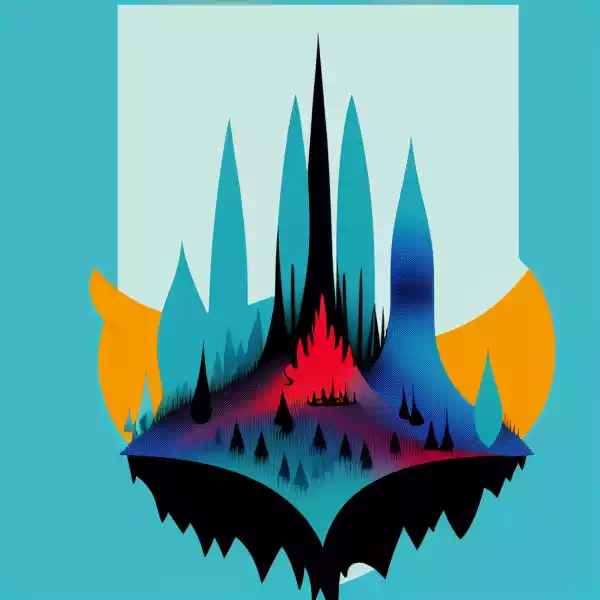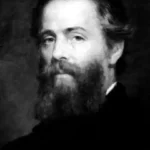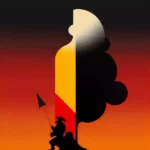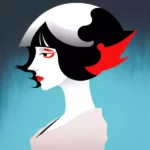 | |
The Paradise of Bachelors and the Tartarus of Maids | |
| Author | Herman Melville |
|---|---|
| Published |
1850
|
| Language | English |
| Nationality | American |
| Genre | Adventure, American Literature |
1850 Short Story
The Paradise of Bachelors and the Tartarus of Maids
The Paradise of Bachelors and the Tartarus of Maids is an English Adventure, American Literature short story by American writer Herman Melville. It was first published in 1850.
The Paradise of Bachelors and the Tartarus of Maids
by Herman Melville
The Paradise of Bachelors
It lies not far from Temple-Bar.
Going to it, by the usual way, is like stealing from a heated plain into some cool, deep glen, shady among harboring hills.
Sick with the din and soiled with the mud of Fleet Streetwhere the Benedick tradesmen are hurrying by, with ledger-lines ruled along their brows, thinking upon rise of bread and fall of babiesyou adroitly turn a mystic cornernot a streetglide down a dim, monastic way flanked by dark, sedate, and solemn piles, and still wending on, give the whole care-worn world the slip, and, disentangled, stand beneath the quiet cloisters of the Paradise of Bachelors.
Sweet are the oases in Sahara; charming the isle-groves of August prairies; delectable pure faith amidst a thousand perfidies: but sweeter, still more charming, most delectable, the dreamy Paradise of Bachelors, found in the stony heart of stunning London.
In mild meditation pace the cloisters; take your pleasure, sip your leisure, in the garden waterward; go linger in the ancient library, go worship in the sculptured chapel: but little have you seen, just nothing do you know, not the sweet kernel have you tasted, till you dine among the banded Bachelors, and see their convivial eyes and glasses sparkle. Not dine in bustling commons, during term-time, in the hall; but tranquilly, by private hint, at a private table; some fine Templar’s hospitably invited guest.
Templar? That’s a romantic name. Let me see. Brian de Bois Gilbert was a Templar, I believe. Do we understand you to insinuate that those famous Templars still survive in modern London? May the ring of their armed heels be heard, and the rattle of their shields, as in mailed prayer the monk-knights kneel before the consecrated Host? Surely a monk-knight were a curious sight picking his way along the Strand, his gleaming corselet and snowy surcoat spattered by an omnibus. Long-bearded, too, according to his order’s rule; his face fuzzy as a pard’s; how would the grim ghost look among the crop-haired, close-shaven citizens? We know indeedsad history recounts itthat a moral blight tainted at last this sacred Brotherhood. Though no sworded foe might out-skill them in the fence, yet the worm of luxury crawled beneath their guard, gnawing the core of knightly troth, nibbling the monastic vow, till at last the monk’s austerity relaxed to wassailing, and the sworn knights-bachelors grew to be but hypocrites and rakes.
But for all this, quite unprepared were we to learn that Knights-Templars (if at all in being) were so entirely secularized as to be reduced from carving out immortal fame in glorious battling for the Holy Land, to the carving of roast-mutton at a dinner-board. Like Anacreon, do these degenerate Templars now think it sweeter far to fall in banquet than in war? Or, indeed, how can there be any survival of that famous order? Templars in modern London! Templars in their red-cross mantles smoking cigars at the Divan! Templars crowded in a railway train, till, stacked with steel helmet, spear, and shield, the whole train looks like one elongated locomotive!
No. The genuine Templar is long since departed. Go view the wondrous tombs in the Temple Church; see there the rigidly-haughty forms stretched out, with crossed arm upon their stilly hearts, in everlasting and undreaming rest. Like the years before the flood, the bold Knights-Templars are no more. Nevertheless, the name remains, and the nominal society, and the ancient grounds, and some of the ancient edifices. But the iron heel is changed to a boot of patent-leather; the long two-handed sword to a one-handed quill; the monk-giver of gratuitous ghostly counsel now counsels for a fee; the defender of the sarcophagus (if in good practice with his weapon) now has more than one case to defend; the vowed opener and clearer of all highways leading to the Holy Sepulchre, now has it in particular charge to check, to clog, to hinder, and embarrass all the courts and avenues of Law; the knight-combatant of the Saracen, breasting spear-points at Acre, now fights law-points in Westminster Hall. The helmet is a wig. Struck by Time’s enchanter’s Wand, the Templar is to-day a Lawyer.
But, like many others tumbled from proud glory’s heightlike the apple, hard on the bough but mellow on the groundthe Templar’s fall has but made him all the finer fellow.
I dare say those old warrior-priests were but gruff and grouty at the best; cased in Birmingham hardware, how could their crimped arms give yours or mine a hearty shake? Their proud, ambitious, monkish souls clasped shut, like horn-book missals; their very faces clapped in bomb-shells; what sort of genial men were these? But best of comrades, most affable of hosts, capital diner is the modern Templar. His wit and wine are both of sparkling brands.
The church and cloisters, courts and vaults, lanes and passages, banquet-halls, refectories, libraries, terraces, gardens, broad walks, domicils, and dessert-rooms, covering a very large space of ground, and all grouped in central neighborhood, and quite sequestered from the old city’s surrounding din; and every thing about the place being kept in most bachelor-like particularity, no part of London offers to a quiet wight so agreeable a refuge.
The Temple is, indeed, a city by itself. A city with all the best appurtenances, as the above enumeration shows. A city with a park to it, and flower-beds, and a river-sidethe Thames flowing by as openly, in one part, as by Eden’s primal garden flowed the mild Euphrates. In what is now the Temple Garden the old Crusaders used to exercise their steeds and lances; the modern Templars now lounge on the benches beneath the trees, and, switching their patent-leather boots, in gay discourse exercise at repartee.
Long lines of stately portraits in the banquet-halls, show what great men of markfamous nobles, judges, and Lord Chancellorshave in their time been Templars. But all Templars are not known to universal fame; though, if the having warm hearts and warmer welcomes, full minds and fuller cellars, and giving good advice and glorious dinners, spiced with rare divertisements of fun and fancy, merit immortal mention, set down, ye muses, the names of R. F. C. and his imperial brother.
Though to be a Templar, in the one true sense, you must needs be a lawyer, or a student at the law, and be ceremoniously enrolled as member of the order, yet as many such, though Templars, do not reside within the Temple’s precincts, though they may have their offices there, just so, on the other hand, there are many residents of the hoary old domicils who are not admitted Templars. If being, say, a lounging gentleman and bachelor, or a quiet, unmarried, literary man, charmed with the soft seclusion of the spot, you much desire to pitch your shady tent among the rest in this serene encampment, then you must make some special friend among the order, and procure him to rent, in his name but at your charge, whatever vacant chamber you may find to suit.
Thus, I suppose, did Dr. Johnson, that nominal Benedick and widower but virtual bachelor, when for a space he resided here. So, too, did that undoubted bachelor and rare good soul, Charles Lamb. And hundreds more, of sterling spirits, Brethren of the Order of Celibacy, from time to time have dined, and slept, and tabernacled here. Indeed, the place is all a honeycomb of offices and domicils. Like any cheese, it is quite perforated through and through in all directions with the snug cells of bachelors. Dear, delightful spot! Ah! when I bethink me of the sweet hours there passed, enjoying such genial hospitalities beneath those time-honored roofs, my heart only finds due utterance through poetry; and, with a sigh, I softly sing, “Carry me back to old Virginny!”
Such then, at large, is the Paradise of Bachelors. And such I found it one pleasant afternoon in the smiling month of May, when, sallying from my hotel in Trafalgar Square, I went to keep my dinner-appointment with that fine Barrister, Bachelor, and Bencher, R. F. C. (he is the first and second, and should be the third; I hereby nominate him), whose card I kept fast pinched between my gloved forefinger and thumb, and every now and then snatched still another look at the pleasant address inscribed beneath the name, “No. –, Elm Court, Temple.”
At the core he was a right bluff, care-free, right comfortable, and most companionable Englishman. If on a first acquaintance he seemed reserved, quite icy in his airpatience; this Champagne will thaw. And if it never do, better frozen Champagne than liquid vinegar.
There were nine gentlemen, all bachelors, at the dinner. One was from “No. –, King’s Bench Walk, Temple;” a second, third, and fourth, and fifth, from various courts or passages christened with some similarly rich resounding syllables. It was indeed a sort of Senate of the Bachelors, sent to this dinner from widely-scattered districts, to represent the general celibacy of the Temple. Nay it was, by representation, a Grand Parliament of the best Bachelors in universal London; several of those present being from distant quarters of the town, noted immemorial seats of lawyers and unmarried menLincoln’s Inn, Furnival’s Inn; and one gentleman, upon whom I looked with a sort of collateral awe, hailed from the spot where Lord Verulam once abode a bachelorGray’s Inn.
The apartment was well up toward heaven. I know not how many strange old stairs I climbed to get to it. But a good dinner, with famous company, should be well earned. No doubt our host had his dining-room so high with a view to secure the prior exercise necessary to the due relishing and digesting of it.
The furniture was wonderfully unpretending, old, and snug. No new shining mahogany, sticky with undried varnish; no uncomfortably luxurious ottomans, and sofas too fine to use, vexed you in this sedate apartment. It is a thing which every sensible American should learn from every sensible Englishman, that glare and glitter, gimcracks and gewgaws, are not indispensable to domestic solacement. The American Benedick snatches, down-town, a tough chop in a gilded show-box; the English bachelor leisurely dines at home on that incomparable South Down of his, off a plain deal board.
The ceiling of the room was low. Who wants to dine under the dome of St. Peter’s? High ceilings! If that is your demand, and the higher the better, and you be so very tall, then go dine out with the topping giraffe in the open air.
In good time the nine gentlemen sat down to nine covers, and soon were fairly under way.
If I remember right, ox-tail soup inaugurated the affair. Of a rich russet hue, its agreeable flavor dissipated my first confounding of its main ingredient with teamster’s gads and the raw-hides of ushers. (By way of interlude, we here drank a little claret.) Neptune’s was the next tribute renderedturbot coming second; snow-white, flaky, and just gelatinous enough, not too turtleish in its unctuousness.
(At this point we refreshed ourselves with a glass of sherry.) After these light skirmishers had vanished, the heavy artillery of the feast marched in, led by that well-known English generalissimo, roast beef. For aids-de-camp we had a saddle of mutton, a fat turkey, a chicken-pie, and endless other savory things; while for avant-couriers came nine silver flagons of humming ale. This heavy ordnance having departed on the track of the light skirmishers, a picked brigade of game-fowl encamped upon the board, their camp-fires lit by the ruddiest of decanters.
Tarts and puddings followed, with innumerable niceties; then cheese and crackers. (By way of ceremony, simply, only to keep up good old fashions, we here each drank a glass of good old port.)
The cloth was now removed, and like Blucher’s army coming in at the death on the field of Waterloo, in marched a fresh detachment of bottles, dusty with their hurried march.
All these manoeuvrings of the forces were superintended by a surprising old field-marshal (I can not school myself to call him by the inglorious name of waiter), with snowy hair and napkin, and a head like Socrates. Amidst all the hilarity of the feast, intent on important business, he disdained to smile. Venerable man!
I have above endeavored to give some slight schedule of the general plan of operations. But any one knows that a good, genial dinner is a sort of pell-mell, indiscriminate affair, quite baffling to detail in all particulars. Thus, I spoke of taking a glass of claret, and a glass of sherry, and a glass of port, and a mug of aleall at certain specific periods and times. But those were merely the state bumpers, so to speak. Innumerable impromptu glasses were drained between the periods of those grand imposing ones.
The nine bachelors seemed to have the most tender concern for each other’s health. All the time, in flowing wine, they most earnestly expressed their sincerest wishes for the entire well-being and lasting hygiene of the gentlemen on the right and on the left. I noticed that when one of these kind bachelors desired a little more wine (just for his stomach’s sake, like Timothy), he would not help himself to it unless some other bachelor would join him. It seemed held something indelicate, selfish, and unfraternal, to be seen taking a lonely, unparticipated glass. Meantime, as the wine ran apace, the spirits of the company grew more and more to perfect genialness and unconstraint. They related all sorts of pleasant stories. Choice experiences in their private lives were now brought out, like choice brands of Moselle or Rhenish, only kept for particular company. One told us how mellowly he lived when a student at Oxford; with various spicy anecdotes of most frank-hearted noble lords, his liberal companions. Another bachelor, a gray-headed man, with a sunny face, who, by his own account, embraced every opportunity of leisure to cross over into the Low Countries, on sudden tours of inspection of the fine old Flemish architecture therethis learned, white-haired, sunny-faced old bachelor, excelled in his descriptions of the elaborate splendors of those old guild-halls, town-halls, and stadthold-houses, to be seen in the land of the ancient Flemings. A third was a great frequenter of the British Museum, and knew all about scores of wonderful antiquities, of Oriental manuscripts, and costly books without a duplicate. A fourth had lately returned from a trip to Old Granada, and, of course, was full of Saracenic scenery. A fifth had a funny case in law to tell. A sixth was erudite in wines. A seventh had a strange characteristic anecdote of the private life of the Iron Duke, never printed, and never before announced in any public or private company. An eighth had lately been amusing his evenings, now and then, with translating a comic poem of Pulci’s. He quoted for us the more amusing passages.
And so the evening slipped along, the hours told, not by a water-clock, like King Alfred’s, but a wine-chronometer. Meantime the table seemed a sort of Epsom Heath; a regular ring, where the decanters galloped round. For fear one decanter should not with sufficient speed reach his destination, another was sent express after him to hurry him; and then a third to hurry the second; and so on with a fourth and fifth. And throughout all this nothing loud, nothing unmannerly, nothing turbulent. I am quite sure, from the scrupulous gravity and austerity of his air, that had Socrates, the field-marshal, perceived aught of indecorum in the company he served, he would have forthwith departed without giving warning. I afterward learned that, during the repast, an invalid bachelor in an adjoining chamber enjoyed his first sound refreshing slumber in three long, weary weeks.
It was the very perfection of quiet absorption of good living, good drinking, good feeling, and good talk. We were a band of brothers. Comfortfraternal, household comfort, was the grand trait of the affair. Also, you could plainly see that these easy-hearted men had no wives or children to give an anxious thought. Almost all of them were travelers, too; for bachelors alone can travel freely, and without any twinges of their consciences touching desertion of the fire-side.
The thing called pain, the bugbear styled troublethose two legends seemed preposterous to their bachelor imaginations. How could men of liberal sense, ripe scholarship in the world, and capacious philosophical and convivial understandingshow could they suffer themselves to be imposed upon by such monkish fables? Pain! Trouble! As well talk of Catholic miracles. No such thing.Pass the sherry, Sir.Pooh, pooh! Can’t be!The port, Sir, if you please. Nonsense; don’t tell me so.The decanter stops with you, Sir, I believe.
And so it went.
Not long after the cloth was drawn our host glanced significantly upon Socrates, who, solemnly stepping to the stand, returned with an immense convolved horn, a regular Jericho horn, mounted with polished silver, and otherwise chased and curiously enriched; not omitting two life-like goat’s heads, with four more horns of solid silver, projecting from opposite sides of the mouth of the noble main horn.
Not having heard that our host was a performer on the bugle, I was surprised to see him lift this horn from the table, as if he were about to blow an inspiring blast. But I was relieved from this, and set quite right as touching the purposes of the horn, by his now inserting his thumb and forefinger into its mouth; whereupon a slight aroma was stirred up, and my nostrils were greeted with the smell of some choice Rappee. It was a mull of snuff. It went the rounds. Capital idea this, thought I, of taking snuff at about this juncture. This goodly fashion must be introduced among my countrymen at home, further ruminated I.
The remarkable decorum of the nine bachelorsa decorum not to be affected by any quantity of winea decorum unassailable by any degree of mirthfulnessthis was again set in a forcible light to me, by now observing that, though they took snuff very freely, yet not a man so far violated the proprieties, or so far molested the invalid bachelor in the adjoining room as to indulge himself in a sneeze. The snuff was snuffed silently, as if it had been some fine innoxious powder brushed off the wings of butterflies.
But fine though they be, bachelors’ dinners, like bachelors’ lives, can not endure forever. The time came for breaking up. One by one the bachelors took their hats, and two by two, and arm-in-arm they descended, still conversing, to the flagging of the court; some going to their neighboring chambers to turn over the Decameron ere retiring for the night; some to to smoke a cigar, promenading in the garden on the cool river-side; some to make for the street, call a hack, and be driven snugly to their distant lodgings.
I was the last lingerer.
“Well,” said my smiling host, “what do you think of the Temple here, and the sort of life we bachelors make out to live in it?”
“Sir,” said I, with a burst of admiring candor”Sir, this is the very Paradise of Bachelors!”
The Tartarus of Maids
It lies not far from Woedolor Mountain in New England. Turning to the east, right out from among bright farms and sunny meadows, nodding in early June with odorous grasses, you enter ascendingly among bleak hills. These gradually close in upon a dusky pass, which, from the violent Gulf Stream of air unceasingly driving between its cloven walls of haggard rock, as well as from the tradition of a crazy spinster’s hut having long ago stood somewhere hereabouts, is called the Mad Maid’s Bellows’-pipe.
Winding along at the bottom of the gorge is a dangerously narrow wheel-road, occupying the bed of a former torrent. Following this road to its highest point, you stand as within a Dantean gateway. From the steepness of the walls here, their strangely ebon hue, and the sudden contraction of the gorge, this particular point is called the Black Notch. The ravine now expandingly descends into a great, purple, hopper-shaped hollow, far sunk among many Plutonian, shaggy-wooded mountains. By the country people this hollow is called the Devil’s Dungeon. Sounds of torrents fall on all sides upon the ear. These rapid waters unite at last in one turbid brick-colored stream, boiling through a flume among enormous boulders. They call this strange-colored torrent Blood River. Gaining a dark precipice it wheels suddenly to the west, and makes one maniac spring of sixty feet into the arms of a stunted wood of gray-haired pines, between which it thence eddies on its further way down to the invisible low lands.
Conspicuously crowning a rocky bluff high to one side, at the cataract’s verge, is the ruin of an old saw-mill, built in those primitive times when vast pines and hemlocks superabounded throughout the neighboring region. The black-mossed bulk of those immense, rough-hewn, and spike-knotted logs, here and there tumbled all together, in long abandonment and decay, or left in solitary, perilous projection over the cataract’s gloomy brink, impart to this rude wooden ruin not only much of the aspect of one of rough-quarried stone, but also a sort of feudal Rhineland and Thurmberg look, derived from the pinnacled wildness of the neighboring scenery.
Not far from the bottom of the Dungeon stands a large white-washed building, relieved, like some great whited sepulchre, against the sullen background of mountain-side firs, and other hardy evergreens, inaccessibly rising in grim terraces for some two thousand feet.
The building is a paper-mill.
Having embarked on a large scale in the seedsman’s business (so extensively and broadcast, indeed, that at length my seeds were distributed through all the Eastern and Northern States, and even fell into the far soil of Missouri and the Carolinas), the demand for paper at my place became so great that the expenditure soon amounted to a most important item in the general account. It need hardly be hinted how paper comes into use with seedsmen, as envelopes. These are mostly made of yellowish paper, folded square; and when filled, are all but flat, and being stamped, and superscribed with the nature of the seeds contained, assume not a little the appearance of business-letters ready for the mail. Of these small envelopes I used an incredible quantityseveral hundreds of thousands in a year. For a time I had purchased my paper from the wholesale dealers in a neighboring town. For economy’s sake, and partly for the adventure of the trip, I now resolved to cross the mountains, some sixty miles, and order my future paper at the Devil’s Dungeon paper-mill.
The sleighing being uncommonly fine toward the end of January, and promising to hold so for no small period, in spite of the bitter cold I started one gray Friday noon in my pung, well fitted with buffalo and wolf robes; and, spending one night on the road, next noon came in sight of Woedolor Mountain.
The far summit fairly smoked with frost; white vapors curled up from its white-wooded top, as from a chimney. The intense congelation made the whole country look like one petrifaction. The steel shoes of my pung craunched and gritted over the vitreous, chippy snow, as if it had been broken glass. The forests here and there skirting the route, feeling the same all-stiffening influence, their inmost fibres penetrated with the cold, strangely groanednot in the swaying branches merely, but likewise in the vertical trunkas the fitful gusts remorselessly swept through them. Brittle with excessive frost, many colossal tough-grained maples, snapped in twain like pipe-stems, cumbered the unfeeling earth.
Flaked all over with frozen sweat, white as a milky ram, his nostrils at each breach sending forth two horn-shaped shoots of heated respiration, Black, my good horse, but six years old, started at a sudden turn, where, right across the tracknot ten minutes fallenan old distorted hemlock lay, darkly undulating as an anaconda.
Gaining the Bellows’-pipe, the violent blast, dead from behind, all but shoved my high-backed pung up-hill. The gust shrieked through the shivered pass, as if laden with lost spirits bound to the unhappy world. Ere gaining the summit, Black, my horse, as if exasperated by the cutting wind, slung out his strong hind legs, tore the light pung straight up-hill, and sweeping grazingly through the narrow notch, sped downward madly past the ruined saw-mill. Into the Devil’s Dungeon horse and cataract rushed together.
With might and main, quitting my seat and robes, and standing backward, with one foot braced against the dash-board, I rasped and churned the bit, and stopped him just in time to avoid collision, at a turn, with the bleak nozzle of a rock, couchant like a lion in the waya road-side rock.
At first I could not discover the paper-mill.
The whole hollow gleamed with the white, except here and there, where a pinnacle of granite showed one windswept angle bare. The mountains stood pinned in shroudsa pass of Alpine corpses. Where stands the mill? Suddenly a whirring, humming sound broke upon my ear. I looked, and there, like an arrested avalanche, lay the large whitewashed factory. It was subordinately surrounded by a cluster of other and smaller buildings, some of which, from their cheap, blank air, great length, gregarious windows, and comfortless expression, no doubt were boarding-houses of the operatives. A snow-white hamlet amidst the snows. Various rude, irregular squares and courts resulted from the somewhat picturesque clusterings of these buildings, owing to the broken, rocky nature of the ground, which forbade all method in their relative arrangement. Several narrow lanes and alleys, too, partly blocked with snow fallen from the roof, cut up the hamlet in all directions.
When, turning from the traveled highway, jingling with bells of numerous farmerswho, availing themselves of the fine sleighing, were dragging their wood to marketand frequently diversified with swift cutters dashing from inn to inn of the scattered villageswhen, I say, turning from that bustling main-road, I by degrees wound into the Mad Maid’s Bellows’-pipe, and saw the grim Black Notch beyond, then something latent, as well as something obvious in the time and scene, strangely brought back to my mind my first sight of dark and grimy Temple-Bar. And when Black, my horse, went darting through the Notch, perilously grazing its rocky wall, I remembered being in a runaway London omnibus, which in much the same sort of style, though by no means at an equal rate, dashed through the ancient arch of Wren. Though the two objects did by no means completely correspond, yet this partial inadequacy but served to tinge the similitude not less with the vividness than the disorder of a dream. So that, when upon reining up at the protruding rock I at last caught sight of the quaint groupings of the factory-buildings, and with the traveled highway and the Notch behind, found myself all alone, silently and privily stealing through deep-cloven passages into this sequestered spot, and saw the long, high-gabled main factory edifice, with a rude towerfor hoisting heavy boxesat one end, standing among its crowded outbuildings and boarding-houses, as the Temple Church amidst the surrounding offices and dormitories, and when the marvelous retirement of this mysterious mountain nook fastened its whole spell upon me, then, what memory lacked, all tributary imagination furnished, and I said to myself, “This is the very counterpart of the Paradise of Bachelors, but snowed upon, and frost-painted to a sepulchre.”
Dismounting and warily picking my way down the dangerous declivityhorse and man both sliding now and then into the icy ledgesat length I drove, or the blast drove me, into the largest square, before one side of the main edifice. Piercingly and shrilly the shotted blast blew by the corner; and redly and demoniacally boiled Blood River at one side. A long woodpile, of many scores of cords, all glittering in mail of crusted ice, stood crosswise in the square. A row of horse-posts, their north sides plastered with adhesive snow, flanked the factory wall. The bleak frost packed and paved the square as with some ringing metal.
The inverted similitude recurred”The sweet, tranquil Temple garden, with the Thames bordering its green beds,” strangely meditated I.
But where are the gay bachelors?
Then, as I and my horse stood shivering in the wind-spray, a girl ran from a neighboring dormitory door, and throwing her thin apron over her bare head, made for the opposite building.
“One moment, my girl; is there no shed hereabouts which I may drive into?”
Pausing, she turned upon me a face pale with work and blue with cold; an eye supernatural with unrelated misery.
“Nay,” faltered I, “I mistook you. Go on; I want nothing.”
Leading my horse close to the door from which she had come, I knocked. Another pale, blue girl appeared, shivering in the doorway as to prevent the blast, she jealously held the door ajar.
“Nay, I mistake again. In God’s name shut the door. But hold, is there no man about?”
That moment a dark-complexioned, well-wrapped personage passed, making for the factory door, and spying him coming, the girl rapidly closed the other one.
“Is there no horse-shed here, sir?”
“Yonder, the wood-shed,” he replied, and disappeared inside the factory.
With much ado I managed to wedge in horse and pung between the scattered piles of wood all sawn and split. Then, blanketing my horse, and piling my buffalo on the blanket’s top, and tucking in its edges well around the breast-band and breeching, so that the wind might not strip him bare, I tied him fast, and ran lamely for the factory door, stiff with frost, and cumbered with my driver’s dread-naught.
Immediately I found myself standing in a spacious place intolerably lighted by long rows of windows, focusing inward the snowy scene without.
At rows of blank-looking counters sat rows of blank-looking girls, with blank, white folders in their blank hands, all blankly folding blank paper.
In one corner stood some huge frame of ponderous iron, with a vertical thing like a piston periodically rising and falling upon a heavy wooden block. Before itits tame ministerstood a tall girl, feeding the iron animal with half-quires of rose-hued note-paper, which, at every downward dab of the piston-like machine, received in the corner the impress of a wreath of roses. I looked from the rosy paper to the pallid cheek, but said nothing.
Seated before a long apparatus, strung with long, slender strings like any harp, another girl was feeding it with foolscap sheets which, so soon as they curiously traveled from her on the cords, were withdrawn at the opposite end of the machine by a second girl. They came to the first girl blank; they went to the second girl ruled.
I looked upon the first girl’s brow, and saw it was young and fair; I looked upon the second girl’s brow, and saw it was ruled and wrinkled. Then, as I still looked, the twofor some small variety to the monotonychanged places; and where had stood the young, fair brow, now stood the ruled and wrinkled one.
Perched high upon a narrow platform, and still higher upon a high stool crowning it, sat another figure serving some other iron animal; while below the platform sat her mate in some sort of reciprocal attendance.
Not a syllable was breathed. Nothing was heard by the low, steady, overruling hum of the iron animals. The human voice was banished from the spot. Machinerythat vaunted slave of humanityhere stood menially served by human beings, who served mutely and cringingly as the slave serves the Sultan. The girls did not so much seem accessory wheels to the general machinery as mere cogs to the wheels.
All this scene around me was instantaneously taken in at one sweeping glanceeven before I had proceeded to unwind the heavy fur tippet from around my neck. But as soon as this fell from me, the dark-complexioned man, standing close by, raised a sudden cry, and seizing my arm, dragged me out into the open air, and without pausing for a word instantly caught up some congealed snow and began rubbing both my che







